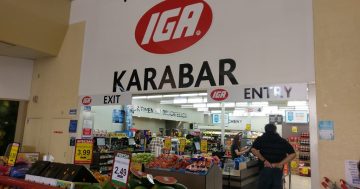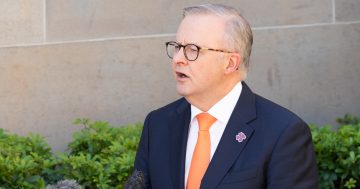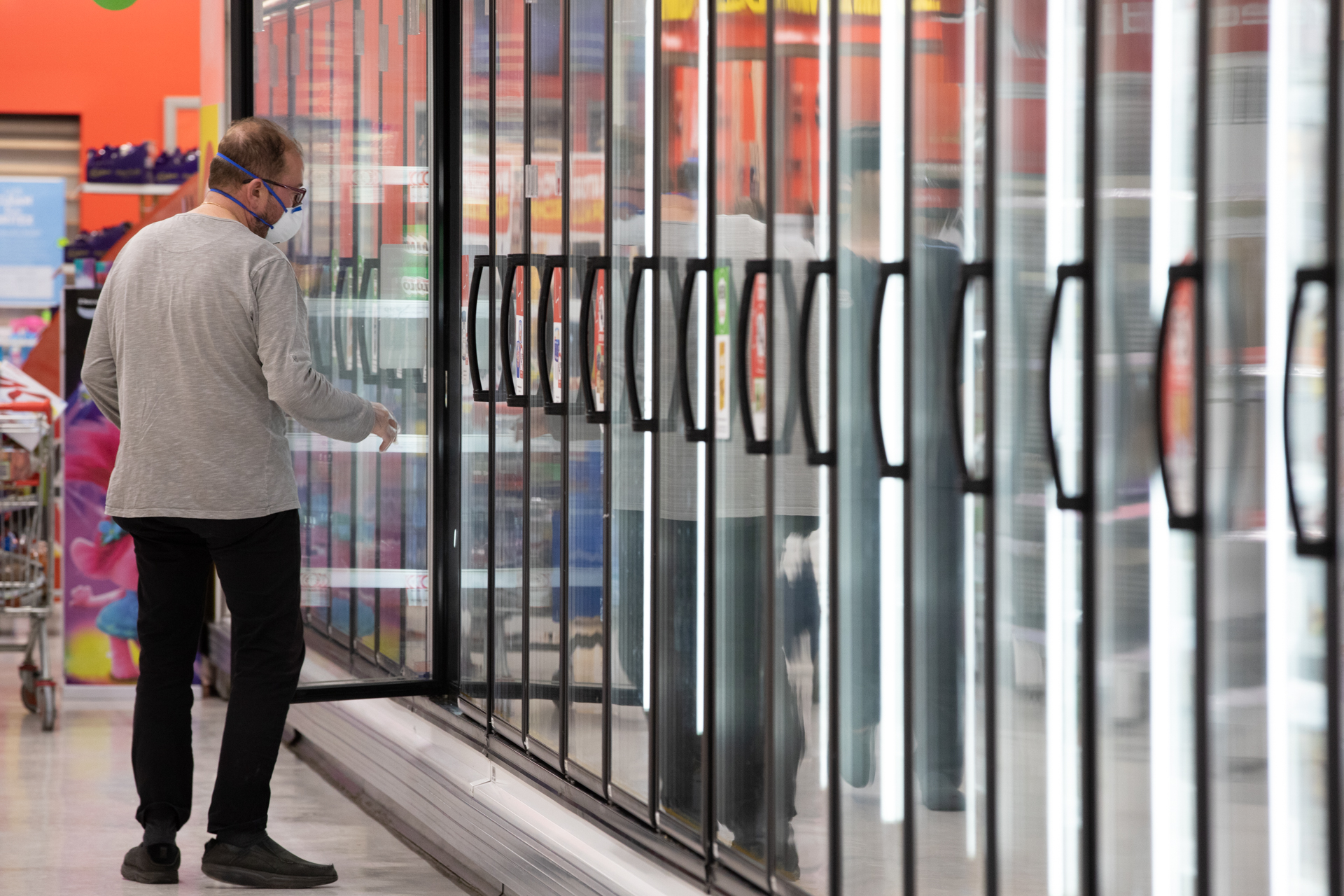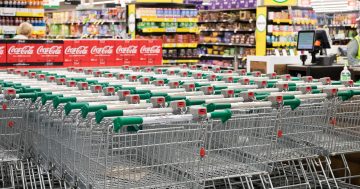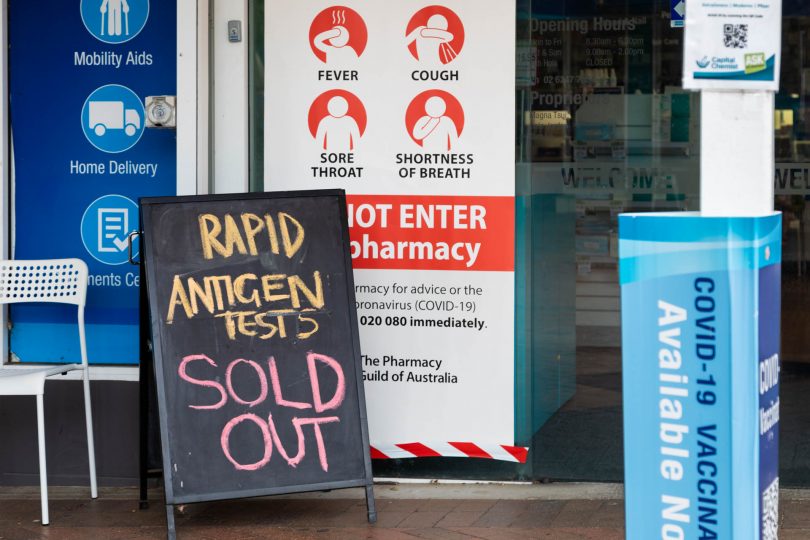
Rapid antigen tests are difficult to find, but they can also be expensive if you can track them down. Photo: Michelle Kroll.
The national consumer watchdog has set its sights on what it described as “outrageous” price gouging on rapid antigen tests, which are reportedly retailing for well above an acceptable price.
According to the Australian Competition and Consumer Commission (ACCC) chair Rod Sims, the most extreme reports of price-gouging across the country include two tests costing up to $500 through marketplaces or one test retailing for $70 through convenience stores, service stations and independent supermarkets.
Mr Sims said these prices are “clearly outrageous” given the tests have wholesale prices of $3.95 and $11.45 per test, depending on the type of test and volumes purchased.
“In the middle of a significant outbreak of COVID-19 in a pandemic, the excessive pricing of rapid antigen tests required to diagnose the illness and protect other members of the public is of significant concern to the ACCC,” Mr Sims said.
Mr Sims added that the ACCC could issue fines and commence legal proceedings against retailers doing the wrong thing. New laws mean profit margins of more than 20 per cent on tests are illegal.

ACCC chair Rod Sims says action can be taken against retailers doing the wrong thing. Photo: ACCC.
Initially, pricing for a single test was around $10, but this has now more than doubled to over $20 – and can be much higher at some smaller retailers.
“We realise demand and supply chain issues have impacted since then, but our initial research suggests that a price of around $20 per test or more, however packaged, may be hard to justify based on the average wholesale costs and such retailers should explain why the price is so high,” Mr Sims said on Monday (17 January).
Consumers have also reported concerns about packs of tests being split and sold in individual lots – sometimes without instructions for use. These incidents have been reported to the Therapeutic Goods Administration (TGA).
The ACCC is particularly concerned about sales of rapid antigen tests at service stations and convenience stores as many complaints relate to these channels.
Across the country, 40 complaints have been received about Metro Petroleum stores and 70 about tobacconists King of the Pack.
However, some complaints have also related to potential scams – when companies accept payment but “did not intend to supply the tests or knew, or should have known, that they would not be able to supply the tests in a timely manner”.
Almost half the complaints (47 per cent) were filed in relation to pharmacies.
Pharmacy Guild of Australia ACT branch president Simon Blacker said the issue for pharmacies remains a lack of supply.
Demand for RATs remains strong in the ACT and largely outstrip available supply.
“It’s incredibly challenging and it’s proving to be incredibly problematic when pharmacies think they’re getting supplies and they just aren’t arriving,” Mr Blacker explained.
The national Pharmacy Guild has also expressed some concerns that supplies are being snapped up by big businesses and governments, thereby increasing shortages at an individual consumer level.
“It does appear that large enterprises in the market are buying large amounts of tests … and so [pharmacies] are continually getting delays,” Mr Blacker said.
In regards to pricing, Mr Blacker said all pharmacies in Canberra are aware of their responsibilities as well as of the scrutiny being placed on the pricing of the tests.
“We support the ACCC’s comments and we think people do need to be held to account for doing the wrong thing,” he explained.
While the ACT Government secured the supply of 50,000 RATs, which arrived over the weekend, this was less than the 75,000 expected. These are being distributed through testing clinics like Kambah and among the public health workforce.
RAT kits at the Kambah testing clinic have now been limited to one per person. People who require a second test have been told to come back at another time.
The ACCC says it’s continuing to investigate all of these claims further and is writing to retailers to ask them to explain the reason for their prices. Consumers can contact the ACCC to report any conduct they are concerned about.












